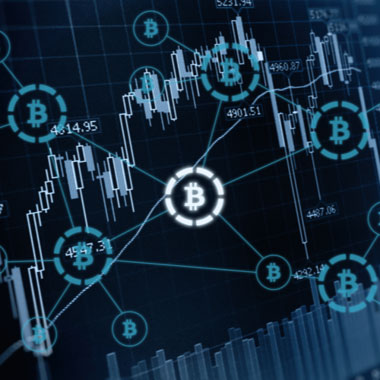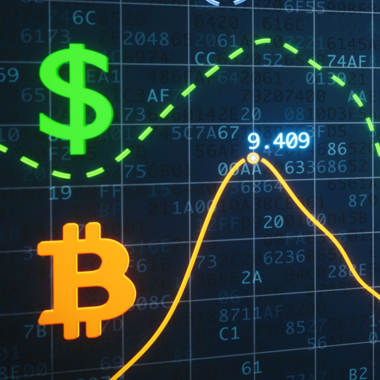
- Four minutes read
The state of blockchain in Brazil: a futuristic approach to economic growth
After attending Blockchain Festival and Febraban Tech in São Paulo, Leandro Pereira, Growth Manager for Latin America at Paysafe, discusses how Brazil has emerged as a hub for blockchain innovation.
Blockchain technology, with its decentralized and transparent nature, is at the heart of corporate innovation, with 52% of Fortune 100 companies having pursued crypto, blockchain, or Web3 initiatives since 2020. In the global marketplace, companies can gain a competitive edge by embracing these technologies to unlock new opportunities.
Brazil has seized this opportunity, with the transformative power of blockchain technology being harnessed across industries.
Here, we break down the emergence and impact of blockchain in Brazil and share our key learnings from Blockchain Festival and Febraban Tech, looking ahead to the technology’s bright future in the corporate ecosystem.
The growth of blockchain in Brazil
In Brazil, the blockchain journey began with cryptocurrency trading, primarily Bitcoin. With the help of regulators, such as the Central Bank and CVM (Brazilian Securities and Exchange Commission), Brazil has been actively exploring blockchain technology to become a leading player in the global digital assets space. This was achieved by building a sustainable innovation environment through sandboxes, labs and many other initiatives.
As a result, the use of blockchain now extends beyond cryptocurrencies to various sectors including finance, agriculture, logistics, and public administration.
Now we are witnessing the broader convergence of traditional finance, fintech, and digital assets in the Brazilian market. This was demonstrated by the presence of cryptocurrency and blockchain companies at Febraban Tech, Latin America's top finance and technology event.
So, what was discussed at this and the Blockchain Festival event?
Traditional finance and digital assets converging
At both events there was an incredible amount of exciting content on topics such as tokenization, digital real estate, and custody.
Traditional finance companies have shown remarkable interest in this new technology and the applications that will modernize our century-old financial system, where executives from Bradesco, Itaú and Santander Brasil discussed the path forward for asset tokenization to take hold in the Brazilian financial system.
Compared to its first ever event last year in Rio de Janeiro, Blockchain Festival also left a clear message that the Brazilian traditional finance sector has started to integrate blockchain technology to enhance security, reduce operational costs and improve customer experience.
The largest banks in Brazil are joining blockchain startups and big tech companies to facilitate cross-border payments and eliminate the inefficiencies associated with traditional banking systems, to build their own custody for digital assets, among many other initiatives including partnering with Web3 native businesses.
The future of blockchain in Brazil
I was thrilled to have the opportunity to join two panels at Blockchain Festival. The first panel, “Tools to start on Web3”, focused on sharing the panelists' experience on how to start learning, building and creating blockchain and Web3 solutions and businesses.
For the second panel, mediated by Aaron Stanley from Brazilian Crypto Report, I was joined by Evelyne Yao from Banco BV Innovation, Camyla Serpa from Banco Itau Digital Assets and Thiago Dias from Mastercard Crypto, to share our views on the "obstacles and strengths for Brazil to become a powerhouse in digital assets."
At Paysafe, we know Brazil is one of the largest emerging markets, with a growing population of internet and smartphone users. The increased adoption of financial technologies, such as digital wallets and online banking, provides an opportunity to expand services. In addition, the Brazilian government has adopted more favorable regulations for fintechs and innovation, which can be beneficial for companies that want to enter or expand in the market. And there are many opportunities for Paysafe to contribute to strengthening the digital asset infrastructure in Brazil.
Yet, despite its rich potential, blockchain adoption in Brazil does face challenges. The regulatory environment keeps evolving, and authorities are struggling to balance innovation with consumer protection. Additionally, there's a significant knowledge gap and lack of technical expertise in blockchain technology.
Thankfully, by investing in education and awareness around digital assets, adoption and trust in new financial technologies can be encouraged among Brazilian consumers and businesses.
The opportunity of blockchain in Brazil
With the Brazilian government's digital transformation strategy, blockchain is expected to play a crucial role in creating a more efficient, transparent and secure digital economy. Furthermore, the growing startup ecosystem in Brazil is likely to drive greater innovation in blockchain applications.
While challenges exist, the potential benefits of blockchain could revolutionize various sectors and transform Brazil into a leading digital economy. With supportive regulations, increased education and technical expertise, the state of blockchain in Brazil is poised for significant growth in the coming years.




